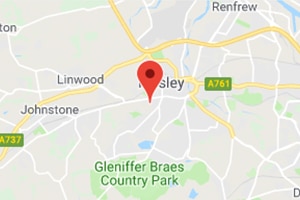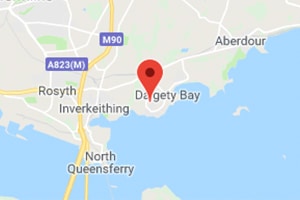To work as a gas engineer in the UK all gas operatives must:
-
- Be Gas Safe Registered.
- Have undertaken relevant ACS training for their chosen work categories.
- Hold a valid and in date ACS certificate of competence.
- Undertake regular CPD to keep up to date with industry changes.

What is ACS gas qualification?
The Accredited Certification Scheme (ACS) is an industry recognised and mandatory entry route for gas engineers to attain the necessary qualifications and competence required to work under the Gas Safe Register.
ACS covers various work categories and requires you to complete an ACS assessment to prove competence in each category. ACS gas courses must be renewed every 5 years to remain a member of the Gas Safe Register.
The scheme is overseen by the United Kingdom Accreditation Service (UKAS).
UKAS is recognised by the government, to assess against internationally agreed standards, organisations that provide certification, testing, inspection and calibration services
What does it cover?
There are six main ACS gas course categories and each of them has a variety of individual appliances that you can be assessed on.
Commercial Laundry
ESP (Emergency Service Provider) & Metering
What does the initial assessment involve?
When you undertake assessment for the first time on a work category, you’ll be required to undertake the ‘initial assessment’ route. The initial assessment is more thorough than your re-assessment and is assessed using multiple-choice theory, written theory and practical assessments.
CCN1 is the domestic natural gas assessment. To undertake this you’ll be assessed on:
- Gas safety regulations and other relevant legislation
- Combustion, relevant pressures and gas rates
- Gas pipework
- Tightness testing and purging, including low and medium pressure gas
- Chimney systems recognition and testing
- Flues and ventilation
- Gas safety controls
- Combustion performance analysis
To use your domestic natural gas qualification though, you’ll be required to undertake appliance assessments for each appliance type you intend to work on.
Our Domestic Natural Gas initial assessment package covers Central Heating Boilers & Water Heaters (CENWAT), Gas Fires (HTR1) and Gas Cookers (CKR1)
There are additional appliances above this that you can add on, but these are the most popular options.
The appliance part of ACS initial assessment, covers:
- Installation
- Commissioning
- Servicing and maintenance
- Basic gas safety fault finding
When do I have to renew my qualification?
When you pass your initial ACS gas course assessment, you need to renew your certification every five years from the issue date of the certificate.
Re-assessments can be taken up to six months early and are similar to vehicle MOT’s where you can renew early without losing any time on your new certificates. For example, if your issue date was 1st July 2019, you could renew your certification on 1st January 2024 and your new expiry date would be 1st July 2024.
If you don’t renew your ACS certificates, you’ll no longer be competent to work under that category and you’ll be removed from the Gas Safe Register.
Do I Need ACS?
To be able to undertake ACS Assessment for your work category you’ll need to meet the entry requirements laid out by the certification body.
Category 1
Candidates are regarded as experienced gas fitting operatives. They will already have a current or expired ACS Certificate, or will have completed an accredited Gas Managed Learning Programme and must be able to prove this to be regarded as a category 1 applicant.
Click here for our Initial Domestic ACS Package
Click here for our Domestic ACS Reassessment Package
Category 2
Candidates should hold a nationally recognised qualification e.g. NVQ or City & Guilds craft certificate in a trade associated with gas work, e.g. plumbing. For candidates who two years or longer working alongside a gas engineer and can provide proof of this by attaining a letter from their employer may also be accepted as a category 2 candidate. To enrol on this course, you will know how to install hot and cold-water pipework and fittings competently. Verification and an assessment will be required in the form of a multiple-choice theory assessment.
Click here for our Domestic Gas Heating Installer Course, suitable for candidates with relative experience in the plumbing or heating industry.
Category 3
Involves new entrants to the gas industry and, as such, they are without a relevant related qualification and/or experience, entering employment for the first time or changing career.
Click here for our New Entrant gas courses.
About the Gas Safe Register
Registration with the Gas Safe Register is a mandatory requirement for anyone completing gas work in the United Kingdom under the Gas Safety (Installation and Use) Regulations 1998.
The Register (and all services associated with it) is operated on behalf of the relevant Health and Safety Authority for each region in which it operates– i.e. Great Britain, Northern Ireland, Isle of Man and Guernsey.
Gas Safe Register replaced CORGI as the only gas registration body in the UK in 2009 and in Northern Ireland and Guernsey in 2010.
It is a legal requirement that all gas companies must be on the Gas Safe Register.
Start Your Training Today with Skills Training Group
Skills Training Group is a UK leading gas and electrical training provider with a range of centres throughout the UK. We deliver a variety of courses for new entrants into the industry, skilled learners upskilling their qualifications or experienced gas engineers renewing their certification.
If you would like more information, call us today on 0808 164 2780.

